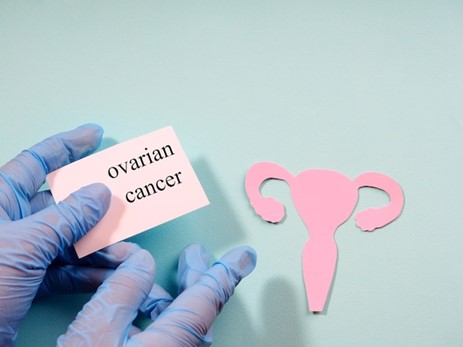Ovarian cancer is a type of cancer that starts in the ovaries, the female reproductive organs that produce eggs. While less common compared to some other cancers, it's crucial to be aware of the risks, symptoms, and treatment options.
What are the Ovaries and Their Role?
The ovaries are located in the lower abdomen, one on each side of the uterus. They have two important functions:
Egg Production: The ovaries release eggs (oocytes) during ovulation, essential for reproduction.
Hormone Production: The ovaries produce hormones like estrogen and progesterone, which regulate the menstrual cycle and other bodily functions.
Risk Factors for Ovarian Cancer
While the exact cause of ovarian cancer remains unknown, several factors can increase your risk:
Age: The risk increases with age, especially after menopause.
Family History: Having a close relative (mother, sister, daughter) with ovarian cancer increases your risk.
Genetic Mutations: Certain mutations in genes like BRCA1 and BRCA2 significantly elevate your risk.
Endometriosis: A condition where tissue similar to the uterine lining grows outside the uterus is associated with a slightly higher risk.
Hormone Replacement Therapy (HRT): Long-term use of certain types of HRT may increase risk, but talk to your doctor about the specific risks and benefits for you.
Obesity: Being overweight or obese is linked to a higher risk of ovarian cancer.
Symptoms of Ovarian Cancer
Ovarian cancer symptoms can be subtle and easily mistaken for other conditions. Here are some to be aware of:
- Persistent pelvic or abdominal pain
- Bloating
- Difficulty eating or feeling full quickly
- Urgent or frequent urination
- Abnormal vaginal bleeding
- Fatigue
- Weight changes
Diagnosis and Treatment of Ovarian Cancer
If you experience any of the mentioned symptoms, your doctor will conduct a physical exam and may recommend further tests like:
- Pelvic ultrasound
- Blood tests
- Biopsy
Treatment for ovarian cancer depends on factors like stage, grade (aggressiveness of the cancer), and your overall health.
Common treatment options include:
Surgery: Removing the ovaries, fallopian tubes, and sometimes the uterus is often the first line of treatment.
Chemotherapy: Using medications to kill cancer cells.
Targeted Therapy: Utilizing drugs that target specific vulnerabilities in ovarian cancer cells.
Radiation Therapy: Using high-energy rays to destroy cancer cells.
Living with Ovarian Cancer
Living with ovarian cancer can be challenging, but with proper treatment, support, and resources, many women can live fulfilling lives.



